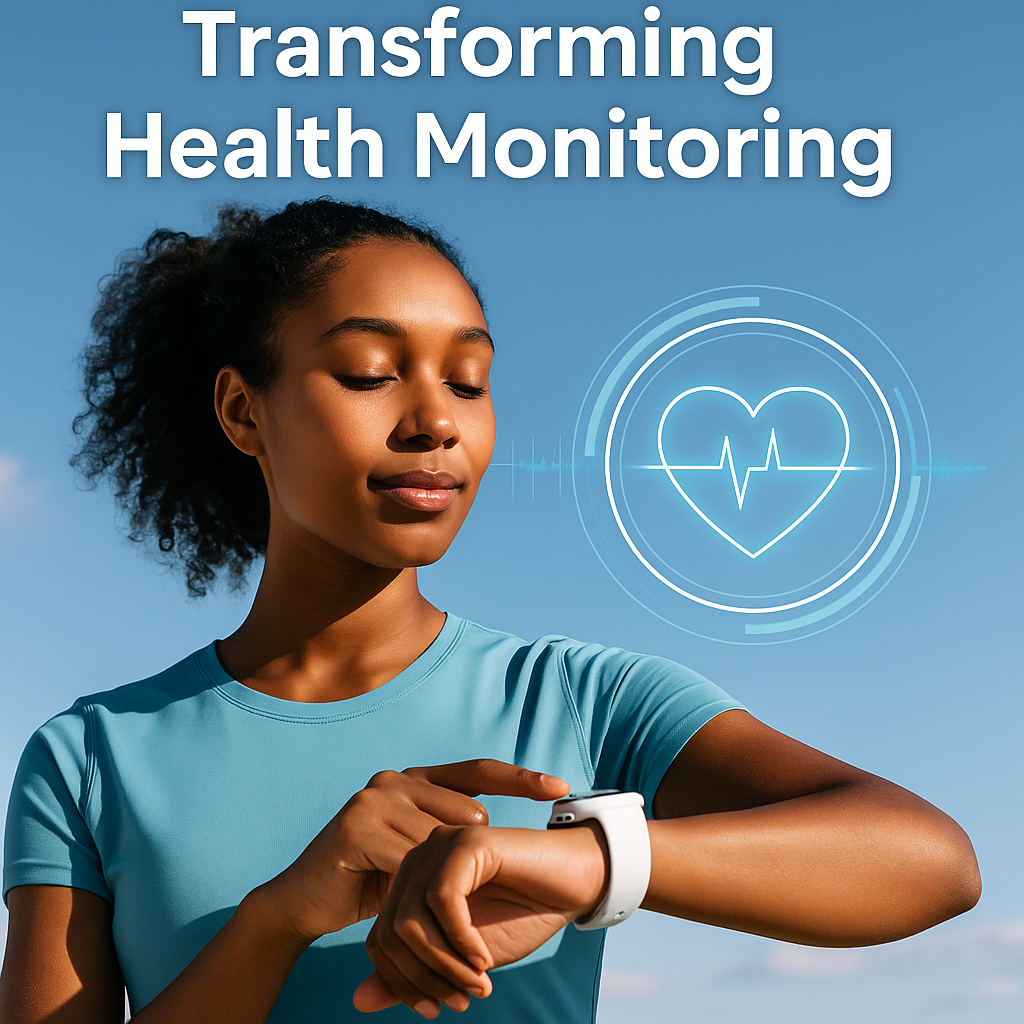Introduction In 2025, the fusion of artificial intelligence (AI) with wearable technology is redefining how we monitor health remotely. With the rise in chronic illnesses and the need for proactive health tracking, AI-powered wearables have emerged as essential tools. These devices offer real-time health insights, predictive alerts, and seamless integration with telehealth services. This article explores the best wearable devices for remote health monitoring in the U.S. and why they matter more than ever.
What Makes Wearables AI-Powered? AI-powered wearable tech refers to smart devices embedded with machine learning algorithms that analyze biometric data in real-time. Unlike traditional wearables, these gadgets don’t just record data – they interpret it. From detecting heart rate irregularities to forecasting blood sugar fluctuations, AI enhances the device’s ability to make intelligent health predictions. This enables early intervention and personalized care like never before.
Top FDA-Approved AI Wearables in 2025 Several wearable devices have gained FDA approval and public trust for remote health monitoring:
- Apple Watch Series 10: Features ECG monitoring, fall detection, and blood oxygen tracking with AI enhancements.
- Biofourmis Biovitals: A clinical-grade wearable that uses AI to manage heart failure and other chronic diseases.
- Evera Ring: Tracks stress, sleep, and HRV using advanced biometric sensors integrated with predictive algorithms.
These devices are transforming remote patient care by delivering accurate, actionable insights directly to healthcare providers.
Use Cases in Remote Patient Monitoring AI-powered wearables are increasingly used in managing chronic conditions:
- Diabetes: Continuous glucose monitors with AI predict dangerous spikes.
- Cardiology: Devices like Biofourmis detect early signs of arrhythmias and transmit data to cardiologists.
- Geriatrics: Elderly users benefit from fall detection and real-time alerts to caregivers.
These smart wearable sensors for chronic disease management are especially valuable in rural and underserved areas where direct access to medical facilities may be limited.
How to Choose the Right AI Health Device When selecting an AI-powered health wearable in 2025, consider the following:
- FDA Approval: Ensures clinical-grade accuracy.
- Battery Life: Look for wearables that offer long use without frequent charging.
- App Integration: Devices should sync with your health record or wellness apps.
- Data Security: HIPAA-compliant data protection is essential.
Compare features before investing to find the best wearable devices for remote patient monitoring in the U.S.
Future Trends in AI Wearables The future of AI health wearables includes real-time blood diagnostics, 6G connectivity for instant doctor access, and wearable biosensors for stress detection. With advancements in machine learning, wearables will offer deeper personalization and even early disease prediction. Tech giants are already investing in neural interface technology and generative AI models that work with biosignals.
Conclusion AI-powered wearable tech is revolutionizing remote health monitoring by delivering accurate, personalized, and proactive care. Whether you’re managing a chronic illness or just want to stay informed about your wellness, these devices offer cutting-edge support. As 2025 progresses, staying updated on wearable tech innovations will help you make smarter health decisions.
Call to Action Explore our in-depth reviews and comparison charts to find the best AI-powered wearable for your health needs. Subscribe for updates and expert insights on emerging health tech!
Have a Query? Find Your Answers Here
Q: What AI wearable is best for diabetes monitoring in 2025?
A: Continuous glucose monitors like the Dexcom G7 with AI predictive capabilities are top-rated for diabetes.
Q: Are AI health wearables FDA approved?
A: Yes, devices like Apple Watch Series 10 and Biofourmis are FDA approved for clinical use.
Q: Can AI wearables replace doctor visits?
A: While they can’t replace doctors, they support better telehealth and early diagnosis.
Q: How accurate are AI-powered wearable health devices?
A: Most FDA-approved wearables offer over 90% accuracy for specific health metrics.
Q: What are the benefits of smart wearable sensors for chronic disease?
A: They allow early detection, remote tracking, and personalized treatment adjustments in real time.



